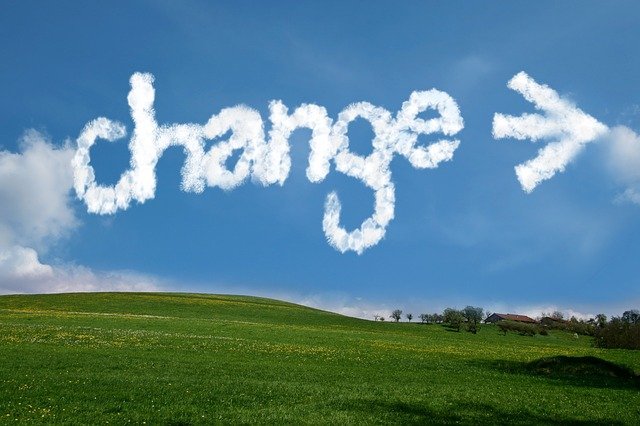Are you in a rut? Still struggling to get to the next level in your career? Not happy with your relationship, or the lack of one? At wit’s end with your kids? Maybe you’ve started an exercise program – again, and again, and again………. Guess what? There’s a coach for that!
Nowadays, there’s a coach for practically anything you want to improve upon in yourself. Life coaches, dating and relationship coaches, career coaches, parenting coaches, weight loss coaches, health coaches, ADHD coaches – the list goes on. Once reserved for athletes and sports teams, coaches today help their clients to achieve success in their career, relationships, or health and wellness.

Coaching, when all is said and done, is about change. It’s about achieving a specific end, developing a skill, reaching a new place, improving some aspect of your self or your life. Often, a client will seek out coaching to achieve a goal that they have been unable to achieve on their own – perhaps they seek to lose weight or quit smoking. It’s been on their minds for a long time. But are they really ready to change? How can they know? And why is permanent change often so elusive? And what’s with the two steps forward, one step back that often seems to accompany change?
Change, it turns out, can have fairly predictable, sequential features and knowing what these are – and which stage you are in – can be key not only to making changes, but being successful in maintaining those changes.
The way change unfolds in stages is detailed in Changing for Good, written in 1994 by psychology researchers James Prochaska, Ph.D., John Norcross, Ph.D., and Carlo Diclemente, Ph.D. Their six stages of change has become a respected model applied to a range of behaviors and circumstances. The stages of change model has been used in programs designed for quitting smoking, weight loss, beginning an exercise program, drug or alcohol dependence, delinquency in adolescents, and many other groups. The National Cancer Institute and the National Institute of Drug Abuse are only two of the recognized programs that have adopted its use.
So what is it? The stages of change model or Transtheoretical Approach consists of these distinct stages:
- Precontemplation: Precontemplators are very often those that either deny having a problem or have no intention of changing a problem behavior that they admit may exist.
- Contemplation: Contemplators are able to acknowledge that they have a problem but are not quite ready to deal with it. They recognize that the difficulty exists, are beginning to think about possible solutions, but are still a ways off from moving forward in any concrete way.
- Preparation: Individuals who are in the preparation stage are getting ready to take action in the immediate future, and are beginning to make necessary adjustments. Examples of this may be creating a plan, shoring up support among friends or family, or clearing unhealthy foods and snacks from cupboards.
- Action: This is where you make your move. You begin to change your behavior and start practicing the new behavior you want to adopt. You put down the cigarettes, you put into practice your new eating plan. This is the stage that requires the most from you in terms of energy and focus.
- Maintenance: Change doesn’t end with the action stage. Maintenance is a vital stage where you continue to integrate and solidify your new behaviors. The tendency to lapse back into the old behavior may still be strong, and vigilance to maintain the new way is important. This stage can last anywhere from six months to a lifetime.
- Termination: There is debate about this stage but, in essence, this stage is when the problem behavior or addiction no longer poses any real temptation. The discussion over termination lies in the fact that one can stop a behavior (i.e., stop smoking cigarettes) but may have to remain somewhat alert to the possibility of temptation and relapse indefinitely. One can lose 15 pounds, and yet there is also the reality that one can gain it back if they return to former eating patterns. Regardless, in this stage the problem is no longer an issue and there is a certain degree of consistency and confidence in the new behaviors.
One of the major findings of this approach is that knowing what stage you are in is key to successful change. Research by the authors consistently showed that “people who try to accomplish changes they are not ready for set themselves up for failure.” Spending too much time in any one stage – contemplation, for example, can lead to paralysis and a continuing substitution of thinking for action. Leaping into action too quickly without the proper foundation of support and preparation can lower your chance of success.
So what’s the takeaway? True change is a process that takes place over time. Knowing what stage you are in can help you to successfully prepare for and navigate to the next stage, and the next. When we identify an area of our life where change needs to take place, the assumption is that we would like that change to be lasting. Using the information contained in these stages can guide you on your path, and stack the odds for success in your favor.
Source: Changing for Good: A Revolutionary Six-Stage Program for Overcoming Bad Habits and Moving Your Life Positively Forward, (1994) James O. Prochaska, Ph.D., John C. Norcross, Ph.D, and Carlo C. Diclemente, Ph.D.
I love to hear from you so feel free to email me anytime with your comments or suggestions for future topics you’re interested in at suzanne@evergreenlifeandwellness.com.